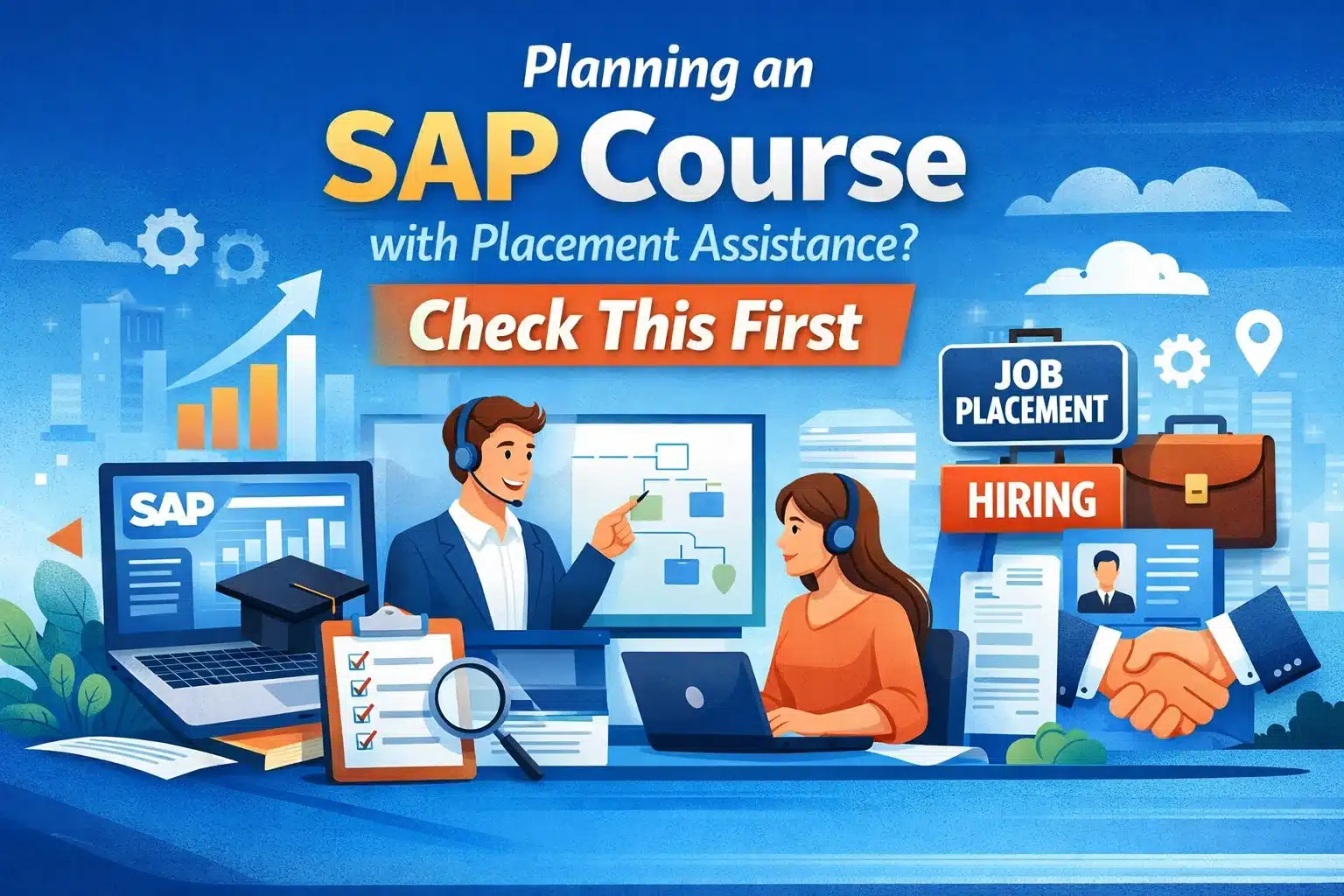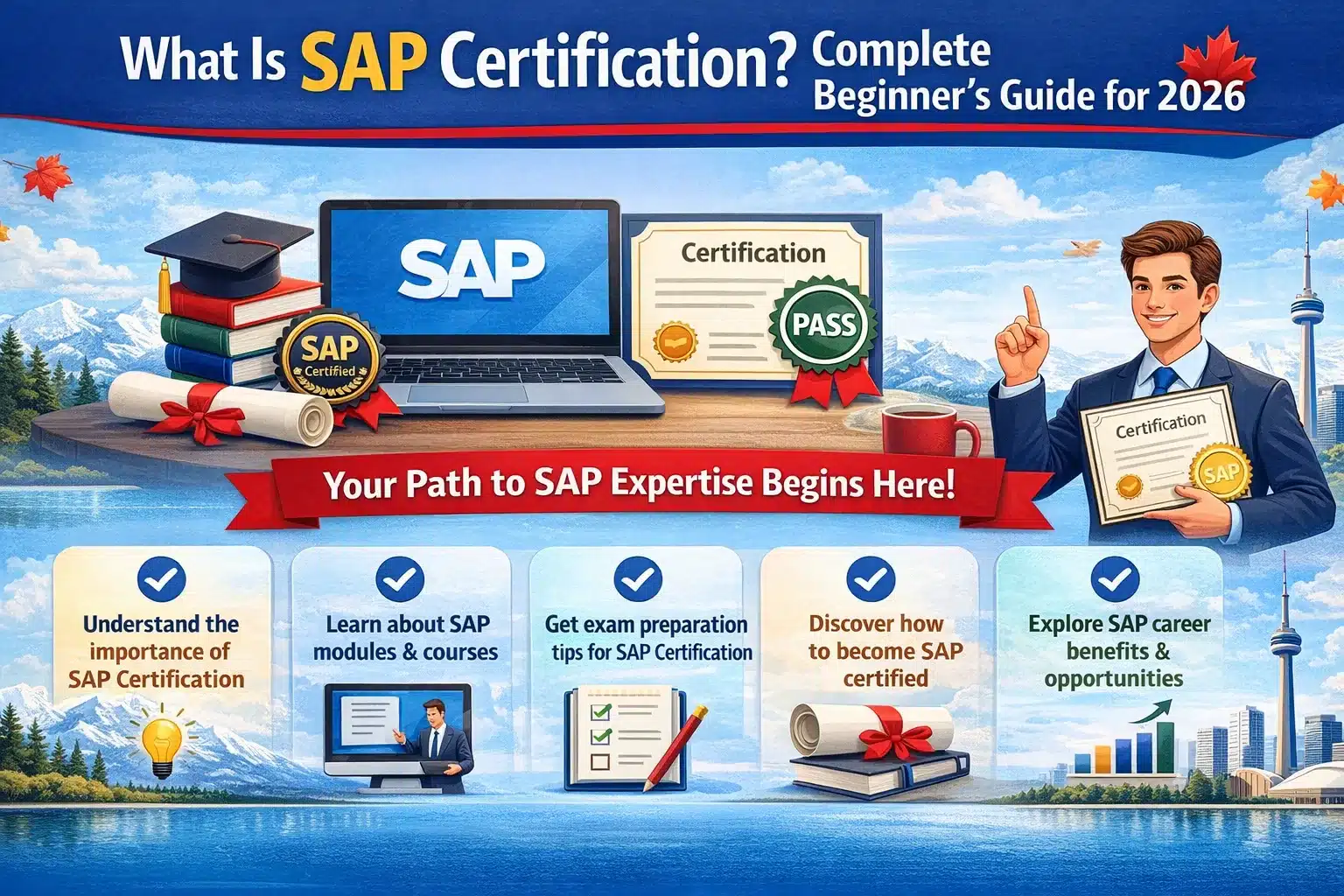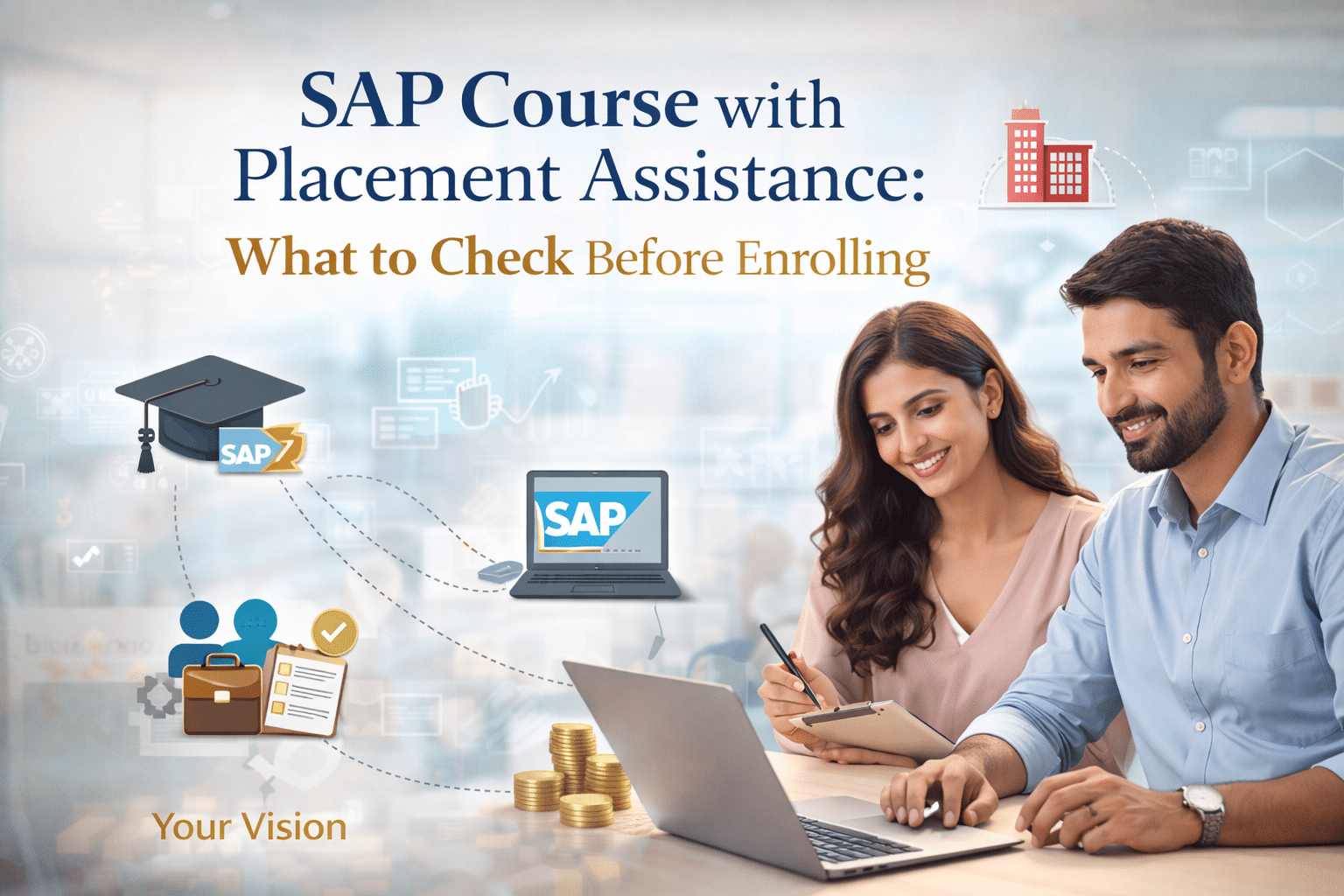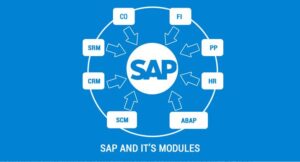Learning SAP SCM: Online vs Classroom Courses—Which is Best for You?
Learning SAP SCM: Online vs Classroom Courses—Which is Best for You? – If you are hoping to develop a career in Supply Chain Management (SCM), you likely are already familiar with SAP SCM. SAP SCM is one of the most used solutions for managing everything from procurement and production planning to logistics and distribution. Companies utilize it to manage their operations, reduce costs, and remain competitive. In short, that means SAP SCM professionals are in high demand.
However, if you want to learn it, you are probably left with one big question: Should you learn SAP SCM through an online course or a traditional classroom experience? They each have their pros and cons. Which choice is right for you will depend on your personal lifestyle, business goals, and preferred learning style. Let’s examine what each option presents, where the flaws are, and also show how to figure out which one is best for you.

A Quick Overview: What is SAP SCM?
Table of Contents
ToggleSAP SCM is a suite of tools designed to give organizations greater control over their supply chains. Think of it as a central nervous system controlling their procurement, production, warehousing, and logistics. Here is a brief overview of what SAP SCM can help with –
- Improving demand forecasting
- Increasing supplier collaboration
- Streamlining inventory levels
- Navigating transportation and logistics more efficiently
Because it applies to so many areas of a business, acquiring knowledge of SAP SCM is not something you just “learn on the job.” You will require thorough training, with assistance, essentially online or workplace, to really grasp the concepts.
Learning SAP SCM via an online format
Why online learning is beneficial
A good balance of freedom
You will be able to learn at your own pace, from the living room couch, the office, or even a hotel room on a work trip. This is good for those who are working full-time or for those who have other commitments.
Self-paced learning
Did you miss something in a lecture? It doesn’t matter; you can go back and view the video as many times as you want. This is especially useful for advanced topics like APO.
More cost-effective
Since you are not paying for travel or for a physical facility, most people find that online SAP courses cost less.
Globally available
You can choose instructors/programs from all over the world, and not just from what is locally available.
The downside
Online learning is not for everyone. Some people have a problem with staying disciplined to follow through. You might also miss the in-person energy of a classroom, like asking a quick question in real time or having casual discussions with peers that often lead to new insights.
Learning SAP SCM in a classroom
Why classroom training can be good
Face-to-face interaction
Being in the same room as your instructor makes it easier to ask questions and get quick feedback.
Structure and accountability
With fixed schedules and regular classes, it is harder to procrastinate. You show up, you learn, simple.
Hands-on practice
Several classroom programs include guided labs, so you can try things out on a real SAP system with the instructor nearby to help.
Networking opportunities
You will meet classmates and industry professionals who might turn into important career connections down the road.
The downsides
The main drawbacks? Cost and convenience. Classroom courses often come with higher fees, expenses for travel and accommodation if the center is not nearby. On top of that, fixed schedules might clash with your job or personal commitments.
Online or Classroom: Which one is right for you?
There is no universal answer; it lies in what matters most to you. Here are some factors to think about –
Your learning style
- Independence and learning at your own speed? Online might be perfect.
- Want structure and live interaction? The classroom may suit you better.
Your career stage
- Beginners often benefit from the extra support and structure of classroom training.
- Working professionals usually want the flexibility of online learning.
Your budget - Online is typically cheaper.
- Classroom training costs more but sometimes comes with benefits like placement support.
Your location
- No training center nearby? Online makes things accessible.
- Got a good local institute? Classroom training could be convenient.
The Hybrid option: Best for both worlds
Nowadays, many SAP SCM training providers are providing combined learning models. For example, you might learn theory online but attend in-person workshops for practical labs. Or you could take live virtual classes that feel more interactive than self-paced videos.
This hybrid approach gives you flexibility without losing the benefits of live interaction, definitely worth exploring if you are on the fence.
Conclusion
So, learning SAP SCM: Online vs classroom-which is best for you? Go for online courses if you want flexibility, affordability, and worldwide access. Select classroom courses if you want structured learning, hands-on practice, and direct networking. Think about hybrid models if you want a mix of both.
At the end of the day, the best course is the one that keeps you motivated to learn and practice. Whichever path you take, mastering SAP SCM can open doors to exciting, high-demand job roles in supply chain and logistics.
FAQs
Are online SAP SCM certifications respected by employers?
Yes, employers typically care that you are certified and can apply the skills in real-world scenarios. As long as the course is from a reputable provider, whether you studied online or offline doesn’t really matter.
How long does it take to finish an SAP SCM course?
It depends on the format. A self-paced online course might take you 2-3 months if you study part-time, while an intensive classroom course could be wrapped up in 4 to 6 weeks.
Which option is better for landing a job?
Classroom training sometimes provides you with an edge because of placement support and networking, but online courses are catching up fast, providing career guidance and job boards. However, what matters most is your skills, not the format.
Can I start online and switch to classroom training later?
Yes, various providers let you upgrade or switch midway. This flexibility is great if you realize your first choice is not clicking with your learning style.
Dont Hesitate To Contact Us
Recent Post









